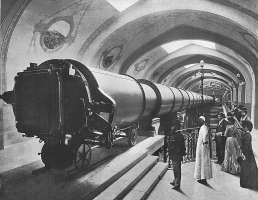Before circa 1870, if you had posed the question, “What has modern science got to do with modernity?” the answer would probably have been “not much.” To some of the most perceptive mid-nineteenth-century observers of how society was undergoing unprecedented economic, social, political, and technological changes, science was a sideshow. One of the earliest descriptions of the experience of modernity comes from Karl Marx and Friedrich Engels’s Communist Manifesto, written in the febrile early months of the revolutionary year 1848:
Constant revolutionising of production, uninterrupted disturbance of all social conditions, everlasting uncertainty and agitation distinguish the bourgeois epoch from all earlier ones. All fixed, fast-frozen relations, with their train of ancient and venerable prejudices and opinions, are swept away, all new-formed ones become antiquated before they can ossify. All that is solid, melts into air, all that is holy is profaned [Alles Ständische und Stehende verdampft, alles Heilige wird entweiht].
According to Marx and Engels, science and even “steam-navigation, railways, electric telegraphs” were all the effects, not the causes, of these prodigious bourgeois industrial energies, at once so productive and destructive. Just as the modern state had become little more than “a committee for managing the common affairs of the whole bourgeoisie” and family bonds had been reduced to “a money relation,” so the bourgeoisie had “converted the physician, the lawyer, the priest, the poet, the man of science, into its paid labourers.” From this perspective circa 1850, science was not the moving edge of modernity: like almost everything else, it was being dragged along by the juggernaut of industrial capitalism.
TO ACCESS THE FULL TEXT, PLEASE CLICK THE “DOWNLOAD PDF” LINK.


